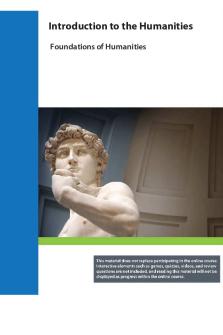Module 1 - Introduction to Consumption Taxes PDF

| Title | Module 1 - Introduction to Consumption Taxes |
|---|---|
| Course | Accounting |
| Institution | Adamson University |
| Pages | 3 |
| File Size | 153.5 KB |
| File Type | |
| Total Downloads | 235 |
| Total Views | 286 |
Summary
BUSINESS AND TRANSFER TAXATIONIf you don’t mind your BUSINESS, you might TRANSFER.INTRODUCTION TO CONSUMPTION TAXConsumption of either goods or services is subjected to Consumption taxes. For tax purposes, consumption refers to the initial purchase or acquisition of goods or services. Consumption is...
Description
BUSINESS AND TRANSFER TAXATION If you don’t mind your BUSINESS, you might TRANSFER.
INTRODUCTION TO CONSUMPTION TAX
KONSUMISYON
TAX
Consumption of either goods or services is subjected to Consumption taxes. For tax purposes, consumption refers to the initial purchase or acquisition of goods or services. Consumption is either domestic or foreign, be reminded that taxation is inherently territorial so our government can only impose tax upon domestic consumption. Destination Principle – states that domestic consumptions only are subjected to consumption taxes Types of Domestic consumption subjected to consumption taxes 1. Domestic sale – purchases from resident sellers (Business tax is the consumption tax applied to domestic purchases only if the seller is engaged in business) Elements of Business 1. Habitual Engagement 2. Commercial Activity Types of Consumption Taxes (Business tax) 1. Percentage tax a. General 3% tax – imposed on vatable sales (Goods/Services) of sellers who are not VAT registered / registrable (Sales/Receipts not exceeding 3,000,000 threshold) b. Specific percentage tax – ranges from .6% to 30%, applied on provider of services specifically specified by law to be subjected to percentage taxes 2. Value Added Tax – imposed on vatable sales (Goods/Services) of sellers who are Vat Registered or registrable (Sales/Receipts exceeded the 3,000,000 threshold) 3. Excise tax – an additional tax to either VAT or percentage tax on certain goods or services
2. Importation – purchases from abroad by non – residents (VAT on importation is applied on importation regardless on the status of the non – resident seller whether engaged or not in business)
Cross Border Doctrine – goods that cross the border destined for foreign countries are not charged of consumption taxes (effectively 0 %) Notes: Ecozones or Tourism enterprise zones, Services provided to non – residents Rationale of Imposing Consumption Taxes 1. Savings Formation - Consumption taxes are usually imposed upon buyers, thus limit consumption of goods and services which leads to savings formation 2. Benefit Received theory – Consumption tax is a tax to all, with the presumption that individuals are indirectly benefiting on the public services provided to the government. No one can have the excuse of not paying for not having direct benefit from the government. Note: There are exempt consumptions provided by law to mitigate the effect of this rationale especially for the benefit of the poor (Human necessity)
3. Wealth Redistribution – this is the aftermath of consumption taxes rationalizing the Benefit received theory and Savings formation. Probably the rich will contribute more and summing up the generated consumption taxes as funds of the government in providing public services that will surely benefit the general public. Self –Evaluation (True or False with explanation) 1. Consumption Tax is a tax levied upon businesses -
False (Business tax is only a type of consumption tax which is applied to resident sellers which are engaged in business. VAT on importation is also a consumption tax which is applied on domestic consumption from foreign sellers regardless whether they are engaged in business or not)
2. A purchase is a form of consumption - True (For tax purposes, consumption taxes are applied upon initial purchase regardless whether the goods are consumed or not) 3. A tax on consumption will effectively causes all residents of the state to pay tax - True (As stated in one of the rationales of consumption taxes, that the state in general is indirectly benefiting from the services to the government and in return consumption taxes is coined as a tax to all) 4. Consumption is the acquisition or utilization of goods or services - True 5. Income tax is based on the taxpayer’s capacity to sacrifice for the support of the government - True (Comparing income and business tax, Income tax is based on Ability to pay theory while business tax is under the Benefit Received theory) 6. Consumption tax is more consistent with “ability to pay” theory rather than the Benefit Received theory - False (Income tax is the one which is based on the Ability to pay theory)
7. A tax on consumption would support savings initiative - True (Initially consumption taxes are additional burden on part of the buyer which limits consumption, that is why promotes savings formation) 8. Consumption taxes should not apply would not apply to basic necessities - True (As consumption tax is coined as anti-poor, the government exempted consumption of basic necessities as well as those which are outside the scope of tax as taxation is inherently territorial, and finally those which are granted exemption/incentives by agreement/treaty. 9. Both Domestic and Foreign consumption are subject to consumption tax - False (Only domestic consumption is subjected to consumption tax. Those which are purchased a domestic seller, business tax is applied only if the seller is engaged in business, and if from foreign seller Vat on importation is applied regardless on the nature of the seller.) 10. Non – Resident sellers are exempt from consumption taxes on their domestic sales in the Philippines - True (VAT on importation is an absolute and direct tax, it is imposed upon the buyer)...
Similar Free PDFs

Taxes on Consumption and Wealth
- 3 Pages

Module 1 -Introduction to Research
- 15 Pages

Module 1 Introduction To Mechanics
- 11 Pages

Introduction to Law Module Handbook
- 24 Pages

PCM-module 1-Introduction
- 3 Pages
Popular Institutions
- Tinajero National High School - Annex
- Politeknik Caltex Riau
- Yokohama City University
- SGT University
- University of Al-Qadisiyah
- Divine Word College of Vigan
- Techniek College Rotterdam
- Universidade de Santiago
- Universiti Teknologi MARA Cawangan Johor Kampus Pasir Gudang
- Poltekkes Kemenkes Yogyakarta
- Baguio City National High School
- Colegio san marcos
- preparatoria uno
- Centro de Bachillerato Tecnológico Industrial y de Servicios No. 107
- Dalian Maritime University
- Quang Trung Secondary School
- Colegio Tecnológico en Informática
- Corporación Regional de Educación Superior
- Grupo CEDVA
- Dar Al Uloom University
- Centro de Estudios Preuniversitarios de la Universidad Nacional de Ingeniería
- 上智大学
- Aakash International School, Nuna Majara
- San Felipe Neri Catholic School
- Kang Chiao International School - New Taipei City
- Misamis Occidental National High School
- Institución Educativa Escuela Normal Juan Ladrilleros
- Kolehiyo ng Pantukan
- Batanes State College
- Instituto Continental
- Sekolah Menengah Kejuruan Kesehatan Kaltara (Tarakan)
- Colegio de La Inmaculada Concepcion - Cebu










